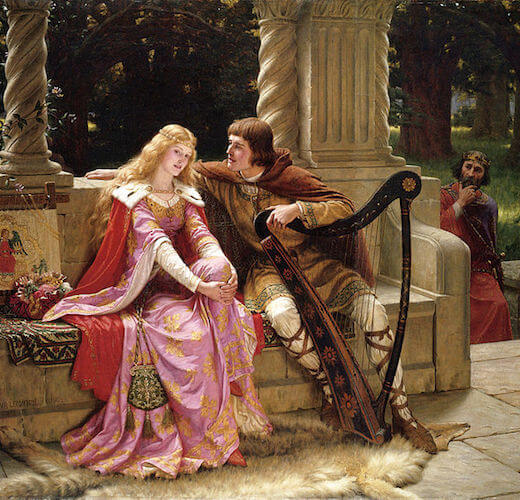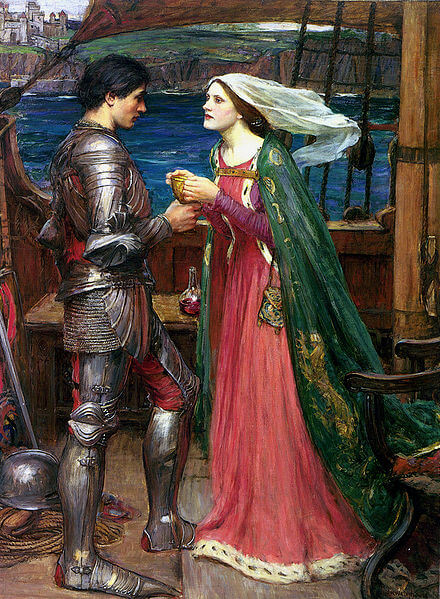Gender Feminine
Usage German, Arthurian Romance
Meaning & History
German form of Iseult, appearing in the 13th-century German poem Tristan by Gottfried von Strassburg. In 1865 the German composer Richard Wagner debuted his popular opera Tristan und Isolde and also used the name for his first daughter.
Related Names
Popularity
People think this name is
Name Days
Austria: August 23
Images
 Tristan and Isolde in a painting by Edmund Leighton (1902)
Tristan and Isolde in a painting by Edmund Leighton (1902) Tristan and Isolde by John William Waterhouse (1916)
Tristan and Isolde by John William Waterhouse (1916)
